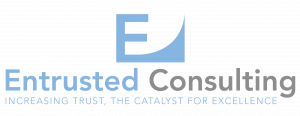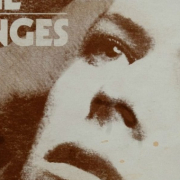Trustworthy v untrustworthy
This article explores the characteristics of instinct and moral compass; faith in the human spirit; anger and forgiveness.
Given a lot has been said recently on Trust, whether within the plethora of articles in the media currently relating to politicians’ motives or simply to personal relationships that go astray at work, the importance of values is eternal. Holding true to our values is a vital facet of the human experience.
This article aims to dispel the myth that everyone is fundamentally untrustworthy. Whether in its purest sense speaking of mankind, or in the context of work, where many cultures are underpinned by the unsaid ‘they can’t be trusted with informing, changing and improving the business’. While this may appear obvious to some readers, the acceptance of trustworthiness can be undermined when we are angry. Therefore, some insight is added to provide balance and perspective in how to approach anger.
To begin, Maria Popova summarised the importance of values and the trustworthiness of people eloquently when she commented on the brilliant content of the book “Founders at Work: Stories of Startups’ Early Days” by Y Combinator founding partner Jessica Livingston by saying “Today, in a culture that talks a great deal about “creating value” but seems to care very little about upholding values, and writes history with the same bias, I keep coming back to the most heartening interview in the volume — Livingston’s conversation with craigslist founder Craig Newmark. Underpinning the site’s success is Newmark’s own idealism, his adamant refusal to surrender to cynicism or succumb to commercialism, and his unflinching faith in the human spirit.”
Newmark’s most powerful insight was… “I got the first inkling of what I now call my “moral compass.” I better understood it later—particularly since the then presidential elections, because then I realized that people were claiming a moral high ground who actually didn’t practice what they preached, and it’s about time for people of goodwill to reassert their idea of what’s right and what’s wrong.”
Newmark was able to stay true to his own values by making very deliberate choices about not letting outside interests interfere with his vision — specifically investors, who invariably bring their own financial interests and thus begin to warp values in favour of narrowly defined “value.” Indeed his most essential insight is that while “follow your gut” is a common platitude often dismissed with a scoff, especially in our culture of great impatience for any semblance of earnestness, there is something to be said for the difference between a throwaway aphorism and an ideal enacted in one’s own life as a “quiet, precise, judicious exercise of probity and care — with no one there to see or cheer.” Newmark’s greatest learning is very much the latter: The biggest entrepreneurial lesson I’ve learned has been that you really do need to follow your instincts. “Trust your instincts and your moral compass… The deal is: we’re not pious about this. We try hard not to be sanctimonious. This is the way people really live; we just don’t talk about it. I’d prefer to be cynical and not talk about it, and yet, that’s real life.”
Therein lies his most heartening conviction — the same one Isaac Asimov shared in his spectacular short meditation on cynicism and the human spirit. Newmark, like Asimov, speaks from a place of resolute humanism. He tells Livingston: “What surprises me, in a way, is how almost universally people are trustworthy and good. There are problems, and sometimes people bicker, which is a pain in the ass, but people are good. No matter what your religious background, we share pretty much the same values. There are some minor differences that we disagree on, but the differences are at the 5 percent level. That’s pretty good.”
The counter balance to these great insights is the fact that human relationships can at times be flawed and with no malice or intention, breakdown. With this we, the receiver of a message, can and perhaps too often do, show anger. We can accept (can we?) anger can be justified with examples like “I’m under too much pressure”, “I’ve been let down in the past” or simply “I don’t have the time for this”, but in truth these are not justifications, more excuses. For trust to thrive we need to both understand anger and deal with it constructively.
For an insight into this paradox, consider the following: The dance of anger and forgiveness, performed to the uncontrollable rhythm of trust, is perhaps the most difficult in human life, as well as one of the oldest.
The moral choreography of that dance is what philosopher Martha Nussbaum explores in Anger and Forgiveness: Resentment, Generosity, Justice. Nussbaum, argues that despite anger’s long cultural history of being seen as morally justifiable and as a useful signal that wrongdoing has taken place, it is a normatively faulty response that masks deeper, more difficult emotions and stands in the way of resolving them. Consequently, forgiveness — which Nussbaum defines as “a change of heart on the part of the victim, who gives up anger and resentment in response to the offender’s confession and contrition” — is also warped into a transactional proposition wherein the wrongdoer must earn, through confession and apology, the wronged person’s morally superior grace.
To be present and to really build trust with colleagues and teams, we need to not only understand the dynamics of anger, but be mindful and act on its consequences, ideally before, not after anger is visible.
At Entrusted Consulting, we identify and enhance levels of TRUST in organisations to optimise corporate performance. This is achieved through a range of services from Trust diagnostic tools, coaching, mediation, board assessment and leadership development at all levels. You can learn more about how Entrusted can help you benchmark and improve the TRUST within your organisation, thus enabling greater results. Contact peter@entrustedconsulting.com













